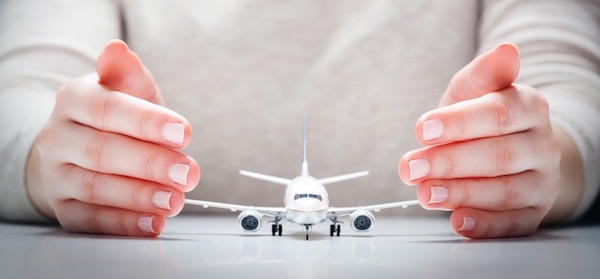Over 8 million Australians venture abroad each year, so it is inevitable that despite how safe we all try to be, there are always some who’ll find themselves in tricky travel situations.
Many of these travel dilemmas are accidental, some are unavoidable and most are unexpected. But with a little common sense and our seven tips for safer travel, you can minimise the chance of travel troubles and have a safe and happy holiday.
1. Check the latest travel alerts
The Australian Government provides travellers with regular updates about security, health and natural disaster situations around the world. Before you head off on holiday, it always pays to check the Smart Traveller website for any incidents that may affect your trip.
2. Check your documentation
Before you travel, or once you’ve booked your trip, it’s a good idea to check your documentation, such as passports, visas, and entry and exit requirement papers. Familiarise yourself with what is necessary to enter your destination, as well as what is required to get out again. Make hard copies of your passports, visas and itineraries and leave them with a trusted friend or loved one. You can even store them online in a MyPost digital mailbox, or post copies to your preferred online storage facility. You should also register your travel plans with the Department of Foreign Affairs and Trade (DFAT) before you go, in case of an emergency.
3. Buy travel insurance
There are arguments both for and against travel insurance, but if you truly wish to be safe, then purchasing travel insurance is non-negotiable. Even if you’re travelling on a budget, there’s an ideal insurance policy for you. And the piece of mind you’ll have on holiday, knowing that you’re covered for any unforeseen incidents, will far outweigh any initial costs.
4. Have a paper map backup
Smartphones with GPS are great when there’s an internet connection, but what if you’re in the wilderness or your phone’s battery runs out of juice? This is when an old-fashioned paper map will help you out of a jam. It always helps to know how to read it too so, if you’re a map amateur, get your bearings on the map before you start exploring your new destination.
5. Do a first-aid course
It goes without saying that, should the unforeseen occur, knowing basic first-aid could be a life-saver on your next sojourn. If you don’t have the time or the money to do a full-blown course, there are plenty of websites and videos on YouTube that can show you the basics. It’s a skill that will be with you for life and not just on your holiday.
6. Travel with minimal cash
Whipping out a fat wallet is a sure-fire way to get yourself mugged, so try to travel with as little cash as possible at any one time. Cash passports and travellers’ cheques are a handy way around carrying cash, but if they’re not your cup of tea, and as long as you’re prepared to pay the transaction fees, then hitting the ATM at regular intervals is safer than carrying wads of cash. Here are some handy tips for how not to get mugged overseas.
7. Familiarise yourself with local laws
Knowing the local laws and customs is essential if you do not wish to attract the ire of the native residents. Not only that, but you could find yourself in serious trouble with the law if you don’t respect the customs. Some examples of customs that vary from Australia’s are:
- modest dress is required in the UAE
- chewing gum is not permitted in Singapore
- you can’t photograph bridges in Peru
- the Maldives do not permit alcohol to be brought into the country.
As with laws in Australia, ignorance is no defence, so being aware of and respecting the laws of your chosen destination could save you embarrassment, or worse.
By following these tips, you should have a safer holiday, but it’s always worth remembering these final pointers: be nice to people, don’t flash your cash, phone or camera around and don’t be rude. Stick with those tips and you’re bound to have a pleasant journey!
Related articles:
Seven classic travel scams
Solo traveller safety
Register your travel details

